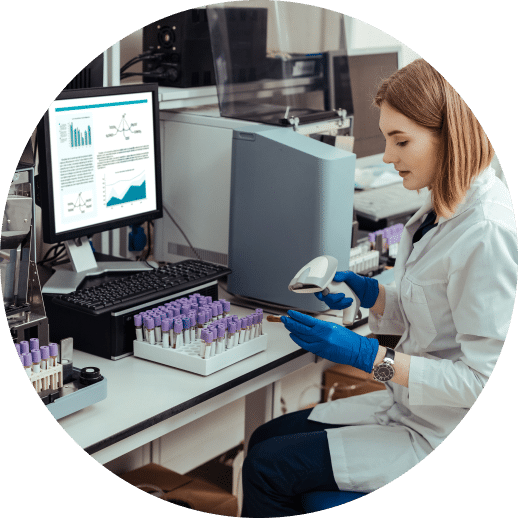Clinical Indication ID & Name
Fetal anomalies with a likely genetic cause - non urgent
Test Group
Specialised
Specialties
Test code
R412.1
Test name
N/A
Target genes
Fetal anomalies (478)
Test scope
n/a
Test method/ technology
WES or Large Panel
Optimal Family Structure
n/a
Eligibility Criteria
Fetus from a demised/non-continued pregnancy, with multiple major structural abnormalities detected on
fetal ultrasound or post-mortem examination (by autopsy, imaging, metabolic and/or histological tests) and where multidisciplinary review(clinical genetics, tertiary fetal medicine specialists, clinical scientists and, where appropriate, relevant paediatric specialists) consider a monogenic malformation disorder is likely.
Only for cases where it is not possible to test by WGS via R27 (e.g. when there is insufficient DNA for WGS).
Testing should be primarily targeted to those families for which this test may influence future pregnancies.
For more detailed guidance for R412, outlined in the non-urgent fetal exome service guidance documentation, please contact your local Genomic Laboratory Hub.
Test code
R412.2
Test name
N/A
Target genes
Fetal anomalies (478)
Test scope
n/a
Test method/ technology
Exon level CNV detection by MLPA or equivalent
Optimal Family Structure
n/a
Eligibility Criteria
Fetus from a demised/non-continued pregnancy, with multiple major structural abnormalities detected on
fetal ultrasound or post-mortem examination (by autopsy, imaging, metabolic and/or histological tests) and where multidisciplinary review(clinical genetics, tertiary fetal medicine specialists, clinical scientists and, where appropriate, relevant paediatric specialists) consider a monogenic malformation disorder is likely.
Only for cases where it is not possible to test by WGS via R27 (e.g. when there is insufficient DNA for WGS).
Testing should be primarily targeted to those families for which this test may influence future pregnancies.
For more detailed guidance for R412, outlined in the non-urgent fetal exome service guidance documentation, please contact your local Genomic Laboratory Hub.
Commissioning group
Specialised
Overlapping idications
• R27 Congenital malformation and dysmorphism syndromes should be used for non-urgent testing e.g. where there is imminent fetal loss or termination of pregnancy, or miscarriage has already occurred • R14 Acutely unwell children with a likely monogenic disorder, if there is an ongoing unaffected pregnancy and testing is urgent, R14 would be appropriate. • R21 Fetal anomalies with a likely genetic cause, should be used for ongoing pregnancies where a molecular diagnosis would change clinical management.
Address for samples/request forms
Please refer to the test request form.
Contact with queries
Supporting documents
n/a
Education resources
n/a
Service updates
n/a
Request form download
Consent record
See consent guidance in test request form
Sample requirements
Sample Requirements Each sample must be sent labelled with 3 patient identifiers and must state the sample type clearly on the sample container. Sample Rejection Samples may be rejected for the following reasons: 1. Samples and request form do not show at least three identical patient identifiers 2. The sample is in the incorrect collection media 3. The request form is not sufficiently completed 4. The sample is not of sufficient volume 5. The sample is too old Sample Storage and Volume Required: Perirpheral blood in an EDTA tube: Adult and children 4 ml, Infants (0-2 years) 1 ml or a DNA sample (3-5µg of purified DNA). Where it is not possible to collect peripheral blood we will accept a saliva sample (please contact the lab for specific details). Storage, sample packing and transportation: Blood should be stored at 4°C where possible. Send at room temperature by first class post or by courier. Patient/Clinician Instructions: N/A Factors affecting performance of test/interpretation of results: Clotted samples are unsuitable for DNA analysis. Blood Samples in incorrect anticoagulant tubes may be rejected.
